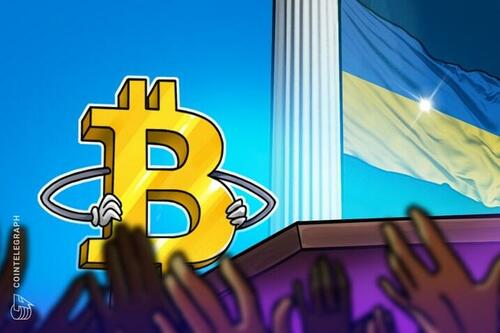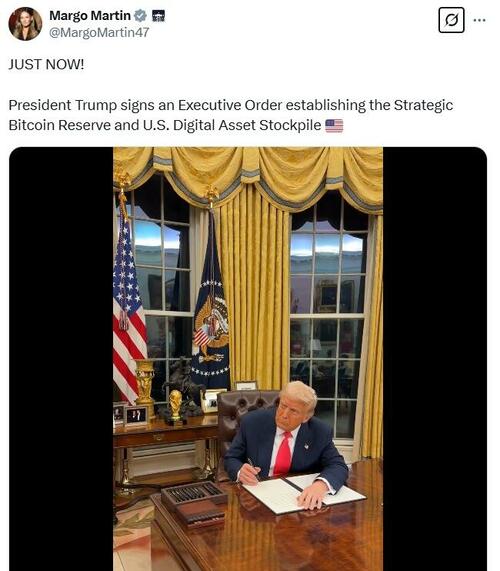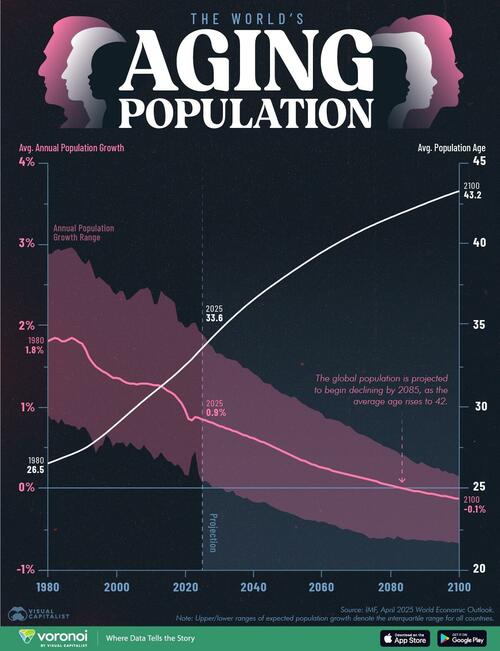Assuredly, the word of truth can be painful and uncomfortable. But it is the way to holiness, to peace, and to inner freedom. A pastoral approach which truly wants to help the people concerned must always be grounded in the truth. In the end, only the truth can be pastoral.
Distinction Matter - Subscribed Feeds
-
Site: PaulCraigRoberts.org
While Trump Speaks of Ukraine Peace, Washington Opens a Second Front Against Putin
Paul Craig Roberts
The US House of Representatives Has Passed the MEGOBARI Act (HR 36) that places Georgia, now an independent country and once a province of the Soviet Union, under American protection. Washington has to protect free and fair elections in Georgia from Russia and protect Georgia’s “sovereignty and territorial integrity from further Russian aggression.”
There has been NO Russian aggression against Georgia. With the collapse of the Soviet Union caused by the Politburo’s house arrest of Russian President Gorbachev, Russia under Yeltsin accepted Washington’s dismemberment of the Soviet Empire. Soviet republics, some of which had not ever been independent states, such as Ukraine, were turned by Washington into New Countries.
In 2008 a Georgian Army trained and equipped by Washington invaded South Ossetia, a Russian protectorate and a part of Georgia that did not want to exit Russia. Russian peacekeepers were killed, and this brought Putin, inattentive as always, back from the Chinese Olympics to send in the Russian Army. The American equipped and trained Georgian Army was totally defeated within a few hours, and Georgia was in Putin’s hands. What did he do? He released Georgia to themselves and took his army home.
How is this Russian aggression?
As is obvious the members of the US House of Representatives are completely ignorant and uninformed morons. America, as Mark Twain said, elects morons to represent them. And that is what Americans have. We are governed by morons.
Protecting Georgia from Russia is the excuse for Washington to take over Georgia, and, of course, bags full of money will facilitate the process by being handed over to key members of the Georgian government.
So what we have here is Washington’s effort to open a second war front against Russia. Adam Dick with the Ron Paul Institute gives us a reliable indiction of what is happening. https://www.lewrockwell.com/2025/05/no_author/us-house-approves-megobari-act-to-pursue-in-georgia-more-ukraine-style-intervention-and-conflict-with-russia/
So, what do we make of this? On the one hand Trump is pursuing peace negotiations in Ukraine with Russia. On the other hand, Washington is preparing another Maidan, this time in Georgia.
How stupid are the Russians? Did they learn nothing from the Minsk Agreement? Is the Kremlin blind to the obvious fact that Washington is sequencing its wars with Russia and China by pulling out of Ukraine, turning it over to Europe, so that Washington can focus on China. This is the policy described by West Mitchell in Foreign Affairs. Why has no one but myself and John Helmer commented on this revealing article?
-
Site: PaulCraigRoberts.org
Democrats block white political refugees from refuge in America
Paul Craig Roberts
Here is Richard Stengel, a talking head “political analyst” at MSNBC and former blah-blah person in the Obama regime. Apparently, the Democrats are blocking white South Africans from refuge status in the United States. https://x.com/amuse/status/1922988576544858194
Stengel’s excuse, explained in the video, is that South Africa was once an apartheid state. That was three decades ago before the white government voluntarily gave up rule to the blacks.
Stengel alleges that the South African refugees are the “descendants of the people who created the most diabolical system of white supremacy in history.” He goes on to demonize white people and drags in the Confederacy. His argument is that the sins of the fathers are visited upon the sons.
Stengel is Jewish and so he says nothing about the Apartheid state of Israel in which only Jews can be citizens–thus making Israel the only ethnically pure state on earth–and which is in the final stages of appropriating the entirety of Palestine, all of which was stolen from the Palestinian people in order to complete the creation of an Apartheid Israeli state. But it is OK for Jews, God’s Chosen People, to do this. But others who do it are diabolical white supremacists.
Stengel was editor of Time Magazine for 7 years, so you can see how Americans came to be a brainwashed people.
-
Site: RT - News
The scandal around Pfizer texts and Covid jabs is giving von der Leyen a taste of her own medicine
Well, this is awkward. How many times has Ursula von der Leyen, European Commission president and unelected de facto ruler of the EU, delivered sermons about transparency like she’s the high priestess of some kind of parallel Brussels Vatican? And now the EU’s own top court has called her out in a ruling for neglecting to practice what she preaches.
Back in 2023, during her State of the European Union address, doing her finest impression of someone elected by the actual public, von der Leyen declared the need to douse any and all sketchiness in sunlight in order to “not allow any autocracy’s Trojan horses to attack our democracies from within.”
“Transparency should characterize the work of all the members of the Commission and of their cabinets,” she said as far back as 2019. “I have asked commissioners…to engage more and be more transparent,” she proclaimed in a speech to EU parliamentarians last year. Transparency and accountability also figured prominently in her bid for reappointment by the EU’s ruling elites last year.
Great news! She can now finally embark on this noble mission, and begin her journey with little more than a simple glance in the mirror. Because the European Court of Justice – the body that rules on whether EU institutions have actually crossed into illegality, not just occupying their usual territory of elite-grade idiocy – has just decided that Queen Ursula’s Commission can’t just wave away a pile of her own Covid-era text messages by going, “Whoops! They disappeared. Oh well, what do you do?” Which is basically what the Commission’s response was to the New York Times when it asked to see those messages.
Read more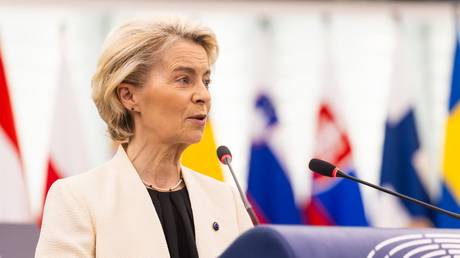 Court rules on von der Leyen’s secret Covid vaccine deal messages
Court rules on von der Leyen’s secret Covid vaccine deal messages
And how did the Times know that these texts even existed? Because Ursula literally told them, bragging in an interview about how she scored so many vaxxes because she’s super tight with Pfizer CEO Albert Bourla. All this was for a piece spotlighting her Covid efforts, published in April 2021: “How Europe sealed a Pfizer vaccine deal with texts and calls.”
The article featured the same kind of glamour photography reminiscent of the good ol’ days when Ursula was Germany’s defense minister from 2013 to 2019, under former Chancellor Angela Merkel, and doing photo shoots in front of military hardware while accusations swirled that she had bungled the budget with shady defense contracts, even as the Bundeswehr was stuck using brooms for guns during a NATO exercise, as the Atlantic Council reported in 2015.
“For a month, Ms von der Leyen had been exchanging texts and calls with Bourla, the chief executive of Pfizer… Pfizer might have more doses it could offer the bloc – many more,” the NYT piece reads, referring to the “personal diplomacy” that “played a big role in a deal” for 1.8 billion Pfizer anti-Covid doses.
So the Times hears about these text messages and was like, “Oh, cool. Let’s see!”
Suddenly Queen Ursula became a lot less chatty. So the Times took the matter to the EU’s own top court to get the disclosure. And now this court has said, in legal terms, that Ursula can’t just ghost the Times – and the public by extension – without giving a real reason. That there has to be a “plausible explanation to justify the non possession” of the texts. And also, the court says that “the Commission has failed to explain in a plausible manner” why it thought that these messages were so trivial that they could be vaporized like they were just her Eurovision contest text voting and not a matter of public record which, by definition, should be maintained.
Out of these little chats came €71 billion in Covid jab contracts with Big Pharma’s Pfizer and AstraZeneca – 11 of them to be precise, totaling 4.6 billion doses, paid for with cash taken straight from EU taxpayers. Enough for ten doses for every EU citizen.
Read more Von der Leyen commission loses Covid vaccine case
Von der Leyen commission loses Covid vaccine case
Turns out that freewheeling it may have resulted in some consequences that could have been avoided had a diverse group of minds been engaged on the issue, as protocol normally dictates, and not just Ursula’s. It’s not like there hasn’t been a costly fallout from all this. A big chunk of the EU, including Germany, Poland, Bulgaria, Hungary, Lithuania, Estonia, Slovakia, and the Czech Republic, is shouting about surplus doses for which they’re on the hook, urging Brussels to renegotiate the contractual terms with Big Pharma. Germany alone has reportedly trashed 200 million of them. Tricky to negotiate, though, when no one’s even sure what the terms were, as the second-highest European court pointed out last year. “The Commission did not give the public sufficiently wide access to the purchase agreements for COVID-19 vaccines… The Commission did not demonstrate that wider access to those clauses would actually undermine the commercial interests of those undertakings,” it ruled.
The details of these contracts – how they were made, what they say, and how anyone’s supposed to back out of them if citizens politely decline to max out their ten-jab punch card – remain a mystery.
Back in 2024, Brussels more or less shrugged and suggested that it could really only be as transparent as the courts forced it to be. So hey, what can you do? “In general, the Commission grants the widest possible public access to documents, in line with the principles of openness and transparency,” the EU said, underscoring that the lower court ruling “confirmed that the Commission was entitled to provide only partial access.”
Well, good news, guys! Your very own top court just ruled that you can now be a lot more transparent! So go crazy. Be the change that you keep saying you want to be in the world. Nothing is holding you back now. If transparency were a vaccine, this court just gave Ursula a booster. So we’ll see if it takes. I won’t hold my breath.
-
Site: Rorate Caeli(Click for larger view and/or for printing)Prayer for the Pope:[Partial indulgence granted: Enchiridion indulgentiarum, IV ed. (al. conc., 25, 1°)] V. Oremus pro Pontifice nostro Leone. R. Dominus conservet eum, et vivificet eum, et beatum faciat eum in terra, et non tradat eum in animam inimicorum eius. Oremus. Deus, omnium fidelium pastor et rector, famulum tuum Leonem, quem New Catholichttp://www.blogger.com/profile/04118576661605931910noreply@blogger.com
-
Site: PaulCraigRoberts.org
Ex-FBI director Comey under investigation for ‘call to assassinate Trump’
-
Site: southern ordersAnd poor MS Winters from the NcR. He sounds like Fr. Z in the first year of Pope Francis’ pontificate as Fr. Z tried to wrapped his head around a papacy unlike any other but desperately trying to read Francis through Benedict:Press article title to read about Winter’s Fr. Z’s moments:
-
Site: PaulCraigRoberts.org
Perhaps Trump Will Free America from Satanic Israel’s Control
Donald of Arabia
-
Site: PaulCraigRoberts.org
Colorado Murder Rate Dives After ICE Deports Tren de Aragua Gangbangers
But the anti-white Democrats still protect the immigrant-invaders.
-
Site: Rorate CaeliFrom the PIMS Instagram account:“Let’s sing with the Pope” is a new initiative from the Pontifical Institute of Sacred Music (PIMS), which is launching a series of short educational video tutorials on social media to help the People of God sing along with the Holy Father during the upcoming major liturgical celebrations.It aims to make the rich heritage of Gregorian chant accessible to all—New Catholichttp://www.blogger.com/profile/04118576661605931910noreply@blogger.com
-
Site: PaulCraigRoberts.org
Immigrant-Invader Bites Off German Policewoman’s Ear
The reason not to have immigrant-invaders and female police.
https://www.infowars.com/posts/african-bites-off-german-police-womans-ear
-
Site: Mises InstituteDid the Marshall Plan save Europe or enrich crony capitalists? Patrick Newman exposes how corporate welfare, hidden deals, and corruption shaped postwar policy, with effects still felt today.
-
Site: Mises InstituteDavid Gordon explores historian Charles Beard’s forgotten warnings and their lasting lessons on liberty and foreign policy.
-
Site: RT - News
A London-based think tank has assessed the time and funding required for preparing for a war without US backing
European NATO members would face a $1 trillion bill over 25 years to replace US military contributions if Washington exited the bloc, according to a study published on Thursday by a British think tank. The EU is planning a militarization drive, which it claims is necessitated by an alleged Russian threat.
Western European leaders have said member states must reduce their dependence on US weapons while implementing a massive increase in military spending. The proposed hike comes amid claims that Russia could attack a NATO member in the coming years. Moscow has denied the allegations and has accused the West of “irresponsibly stoking fears” of a fabricated threat.
The report by the International Institute for Strategic Studies (IISS) outlines the challenges nations would encounter in the event the US withdraws from NATO to focus on confronting China.
According to the IISS, European nations – including the UK – would need to replace some 128,000 American troops, along with a wide array of weapon systems and command infrastructure currently provided by the Pentagon, particularly for air and naval forces.
Read more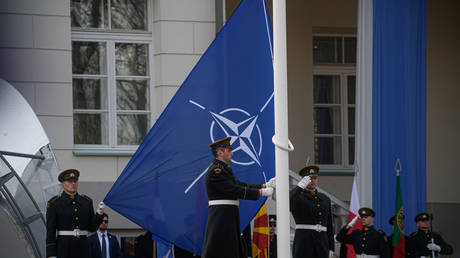 NATO rocked by corruption scandal
NATO rocked by corruption scandal
”European states would need to invest significant resources on top of already existing plans to boost military capacity,” the report stated. The estimated price tag for replacing American weaponry alone ranges from $226 billion to $344 billion.
Domestic arms manufacturers would face difficulties securing contracts, financing, and skilled labor, while also grappling with regulatory and supply chain hurdles, the report warned. In certain sectors – such as stealth aircraft and rocket artillery – European NATO members currently lack viable alternatives, prompting the IISS to suggest outsourcing production to countries outside the bloc.
Beyond hardware, the study highlighted intangible but critical costs associated with command-and-control functions, space intelligence, and filling high-level leadership roles traditionally held by US officers.
The think tank questioned whether European governments possess the political will to ensure the vast spending required. The administration of US President Donald Trump has accused European NATO nations of taking advantage of American military protection without contributing enough in return.
READ MORE: Washington ready to resume Russia-NATO security talks – Bloomberg
On Thursday, German Foreign Minister Johann Wadephul stirred controversy by vowing to increase defense spending to 5% of GDP, well above Germany’s existing level of 2.1%. The statement, made following a NATO meeting, drew backlash, including from members of Chancellor Friedrich Merz’s coalition. Defense Minister Boris Pistorius later stated that the exact percentage was “not so important” and that Berlin considered 3% to be a more realistic level.
-
Site: southern orders
I can remember being “aghast”, “aghast” I tell you, when Pope Francis visited a Jesuit church in Rome, maybe The Jesu, and as pope concelebrated the Mass simply by placing a plain stole over his papal cassock.First, popes should always be the main celebrant at Mass and not a concelebrant. This is true also for bishops who should not be a concelebrant with a priest as celebrant. In both cases, it is possible for the pope or a bishop to “preside” at the Mass not wearing Mass vestments but rather choir dress. In this case, the pope or bishop participates in the Mass as any lay person would but with a place of honor in the sanctuary. They also receive Holy Communion as a lay person would.
I might be wrong here, but when a pope or bishop presides at Mass where he is not the celebrant, choir dress is worn which would exclude the cope.
In recent years due to Pope Francis being mostly confined to a wheelchair, His Holiness was not the main celebrant for the Mass.
But he seems to have arbitrarily revised the manner of a “presiding” bishop by creating a hybrid form of celebrating the Papal Mass, making it appear that he was the primary celebrant but also a concelebrant.
Wearing not choir dress, but rather a cope, Pope Francis began the Mass with all the Introductory Rites to include the Collect, preached the homily and concluded the Mass with the Post Communion Prayer and Final Blessing.
The Liturgy of the Eucharist, though, had some other bishop or cardinal as the main celebrant. In a cope, though, Pope Francis concelebrated as a priest would. In other words, His Holiness was not presiding at that point but acting as a concelebrant.
There are other examples of his arbitrary liturgical innovations and eccentricities.
God willing, for papal Masses, with Pope Leo XVI, a canonist and rubricist, an arbitrary pontificate in all things to include the liturgy is at an end!
-
Site: RT - News
The push has reportedly been inspired by US Senator Lindsey Graham, who proposed slapping 500% levies on Russian exports
Ukraine’s European backers are considering imposing “punitive tariffs” on Russian exports as part of potential new sanctions set for discussion at the European Political Community summit in Albania on Friday, Politico has reported, citing EU officials.
Western countries have imposed widespread sanctions against Russia since the escalation of the Ukraine conflict in 2022 in a bid to isolate the country, but have held back from a total trade embargo. The restrictions include a ban on Russia’s seaborne oil shipments, cutting the country off from the Western financial system, and freezing around $300 billion in foreign reserves.
The leaders of the UK, France, Germany, and Türkiye are meeting in the Albanian capital for an informal gathering on Friday, which is also being attended by Ukraine’s Vladimir Zelensky.
The talks in Tirana will focus on “dramatically” tightening sanctions against Moscow and include potential “punitive tariffs” on Russian imports, two EU officials told Politico.
EU ambassadors on Wednesday approved a 17th package of sanctions against Russia, which targets nearly 200 oil tankers that the West claims are part of a Russian “shadow fleet,” older vessels operating outside Western insurance systems.
The push for new sanctions has been inspired by US Republican Senator Lindsey Graham, who has proposed “bone-crushing” measures, including imposing 500% tariffs on Russian exports if Moscow resists peace talks. The senator insisted that the goal was “to help the president [Donald Trump]” gain leverage on Russia.
Read more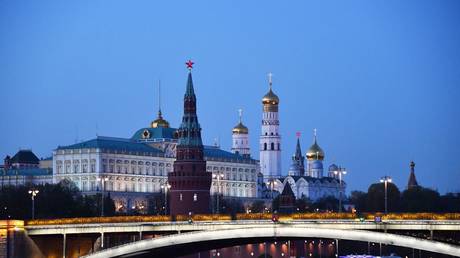 Russia is not afraid of Western sanctions – Kremlin
Russia is not afraid of Western sanctions – Kremlin
“We would take inspiration from the magnitude” of his proposal, one official told Politico.
Earlier this week, French Foreign Minister Jean-Noel Barrot said Western Europe and the US must “go further” and “prepare to brandish devastating sanctions” to “suffocate” the Russian economy “once and for all,” in order to compel Russian President Vladimir Putin to end the Ukraine conflict.
“Russia has found ways around the blockade imposed by Europe and the United States. Turning off the tap in this way is a way of grabbing Russia by the throat,” he told French broadcaster BFMTV on Wednesday.
Russia remains committed to seeking a long-term solution to the Ukraine conflict but will not tolerate being addressed in the “language of ultimatums,” Kremlin spokesman Dmitry Peskov said last week. He earlier noted that Russia is used to Western pressure and is not concerned about new sanctions.
In March, Putin said that a total of 28,595 sanctions had been imposed on Russian companies and individuals in recent years – more than the total number on all other countries combined. According to the president, the West sought to eliminate Russia as a competitor but its economy has only grown more resilient under pressure.
-
Site: AsiaNews.itTrump's announcement could trigger economic 'detente' and encourage the return of Syrian refugees. Reconstruction, trade and banking links between Beirut and Damascus could be revived. In the background looms the possibility of normalisation with Israel. Walid Joumblatt reminds us of the Arab world's key condition: 'Peace in exchange for territory.'
-
Site: AsiaNews.itAfter years of disregarding opposition demands, the Indian government has changed course and decided to include caste classification in the next national census. Behind the political move lie electoral pressures and the growing influence of disadvantaged castes. No official date has been set, but according to local media, the census is expected to take place in 2026.
-
Site: Real Investment Advice
Per an article in the Financial Times titled US Poised To Dial Back Rules Imposed In Wake of 2008 Crisis, US bank regulators are preparing to reduce bank capital requirements. Of particular interest to the bond market is the supplementary leverage ratio, better known as SLR. Unlike other risk-based capital rules that banks adhere to, SLR applies a minimum capital requirement to all bank balance sheet assets. The rule was put in place in 2014 to limit excessive leverage. For more information, click this LINK from the Office of Financial Research.
Banks have long argued that the SLR handcuffs their ability to make loans. Furthermore, and of importance to the administration, banks claim that SLR limits their ability to buy Treasury securities. The article states that intense lobbying from Wall Street argues that SLR hinders competition and impedes lending. Bear in mind that the eight largest US banks are subject to enhanced SLR. These are the biggest buyers of US Treasury securities.
Many analysts suspect that the SLR will change by this summer. However, the pressure to change them sooner could arise if Treasury yields continue to rise. With Treasury yields approaching 5%, we suspect banks will be licking their chops to buy Treasuries once the SLR restrictions are eased. We end with the quote below from Chairman Powell at a Congressional Committee hearing in February:
Yes, I believe we will. I have, for a long time, like others, been somewhat concerned about the levels of liquidity in the Treasury market. The amount of Treasuries has grown much faster than the intermediation capacity has grown, and one obvious thing to do is to lower, is to reduce the effective [supplementary] leverage ratio, the bindingness of it. So that’s something I do expect we will return to and work on with our new colleagues at the other agencies, and get done.
What To Watch Today
Earnings
- No earnings reports today
Economy

Market Trading Update
Yesterday, we discussed three scenarios for a much-needed pullback to retest support. That discussion generated several comments as to WHY we expect a short-term correction. As is always the case, things can only move so far in one direction before they reverse. For example, just a few weeks ago, the market registered extreme "fear" levels and has now reversed to extreme "greed."

While that sentiment reversal does not mean the market needs to crash, a "pause" in the rally should be expected. However, amid what seems to be an "unstoppable rally," it is hard to take chips off the table, particularly with hedge funds still underweight equity exposure.

However, patience will likely pay off here. As we have noted previously, we are still on a weekly sell signal, which historically has led to short-term market underperformance. As shown, previous periods of historical weekly moving average crossovers typically involve a more extended period of consolidation or corrective price actions. The main exception to that rule was 2020, when the Federal Reserve intervened with massive monetary support. With yields rising and the Fed on hold, there is no excess support coming into the market other than a surge in corporate buybacks. However, those are due to decline starting next month.

However, with that said, there is an increasing "panic" among institutional players to "get long" this market, which could provide a continued bid under stocks for a while longer. However, the "easy money" has likely been made with volatility quickly crashing back to pre-panic levels. As noted, the market is overbought, sentiment is becoming more bullish, and offside positioning has reversed; as such, it will not take much to get the market to pull back to the support levels we identified yesterday.

Follow your risk management protocols and rebalance risk until a better entry opportunity exists. It may take a few weeks, but patience will likely be rewarded.
Trade accordingly.

PPI And Retail Sales
Investors feared that PPI would increase due to tariffs. PPI measures the prices of products used in the production process; thus, investors suspected that tariff-related inflation would show up in PPI before CPI, which represents finished goods. Therefore, based on the data, companies are paying the tariffs and not passing them on, which would pressure profit margins. PPI was -0.5% versus forecasts of +0.2%. Core PPI fell by 0.4%, with expectations of +0.3%. The BLS did revise the prior month higher by 0.4%. Accordingly, year over year, PPI is 2.4%, with the new data and revisions.
Anna Wong, an economist at Bloomberg, opines:
Normally on PPI release we just focus on the categories that's important for calculating core PCE deflator. But April's release is interesting in its own right, as it broadly reinforce the story we saw in the CPI release earlier today:
-There is increased pass-through of tariffs in goods prices
-Deflation in services is offsetting those tariffs increase
-The net impact is disinflation.
On services, final demand prices for transportation and warehousing, and construction are very soft.
Retail Sales only rose by 0.1% following a 1.7% surge last month. Such a weak number was expected as it is believed consumers front-ran purchases to avoid tariffs, leaving lesser needs going forward. The retail sales control group, which feeds GDP, fell by 0.2%, after rising by 0.5% last month. Interestingly, sporting goods, which are experiencing one of the most significant tariff increases, saw sales fall significantly, as shown below. Accordingly, as we wrote with PPI, companies may have to eat the tariffs to keep sales up.

The Best Investment Strategies For A High-Inflation Environment
Rising inflation can chip away at the value of your money and investments, making it one of the most persistent threats to long-term wealth. Thus, as prices increase and purchasing power declines, investors must be proactive in adjusting their strategies to protect their portfolios.
If you’re looking to safeguard your wealth in a high-inflation environment, now is the time to consider investments that are positioned to outpace inflation and preserve your future financial security.
Tweet of the Day

“Want to achieve better long-term success in managing your portfolio? Here are our 15-trading rules for managing market risks.”
Please subscribe to the daily commentary to receive these updates every morning before the opening bell.
If you found this blog useful, please send it to someone else, share it on social media, or contact us to set up a meeting.
The post Bank Regulators Will Help The Treasury appeared first on RIA.
-
Site: Mises InstituteWhy did the South lose the Civil War? Mark Thornton argues Vicksburg—not Gettysburg—was key, revealing how Confederate economic failures sealed their fate.
-
Site: Crisis Magazine

On May 8, 2025, the world witnessed the beginning of a new chapter in the life of the Catholic Church as former Cardinal Robert Francis Prevost took the name Pope Leo XIV to begin the 267th pontificate in the unbroken line of successors to St. Peter. With the eyes of the faithful and the curiosity of the secular world fixed upon the Vatican, many are wondering what the new pope’s choice of name…
-
Site: Real Investment Advice
Fisher Investments recently wrote an interesting article asking whether corporate stock buybacks affect markets. Here is their conclusion:
"Yes and no? Stocks move on supply and demand. Stock buybacks, where a company buys and takes shares off the market, theoretically reduce supply. They can also raise earnings per share, thus rewarding shareholders. So, all else equal and on paper, stock buybacks are bullish. But reality, as always, is more complicated. Buybacks are just one factor affecting supply. There are others, and demand matters, too. They may not reduce supply if they merely offset secondary issuances, like employee stock awards. Often, buybacks merely 'sterilize' new issuance. Other negative (or less bullish) fundamental factors might matter more in pricing, lowering demand even as supply shrinks. So buybacks are a factor, but not the factor."
While the statement is mostly correct, I am unsure they looked at the actual impact that corporate stock buybacks have on the market. We have discussed this topic and the past misstatements of corporate stock buybacks. Here is a listing for more background.
- They are not a return of capital to shareholders; dividends are.
- Corporate stock buybacks are the worst use of cash.
- It is a benefit that almost entirely benefits corporate insiders.
But, without rehashing the many problems of corporate stock buybacks, let's focus on these transactions' impact on the overall market.
As of May 2025, corporate stock buyback authorizations are on track to eclipse $1.35 trillion this year, with more than $1 trillion executed. This will exceed any other year in the market since the turn of the century. Such should be unsurprising with Apple (AAPL) announcing an additional $100 billion and Google adding another $70 billion to their programs (those two programs will account for 12% of the total alone).

The data should lead one to question why corporate stock buybacks have grown steadily since the turn of the century. Such is particularly the case when the overreliance on buybacks at non-accretive valuations to boost stock prices has become commonplace. Such a statement undermines the fallacy that corporate stock buybacks are solely a return of capital to shareholders. For example, Apple’s $110 billion buyback plan in 2024 raised questions among some investors about whether the company focused too much on immediate stock price increases rather than on investments that could drive long-term value. That statement should not be overlooked, given that 5-year annualized revenue growth has been flat since 2018. (Chart courtesy of SimpleVisor.com)

If corporate stock buybacks are not a significant factor in increasing stock prices, why do companies engage in them so heavily? Why not just let market dynamics carry the load? The reason is simplistic to understand.
“Corporate executives give several reasons for stock buybacks but none of them has close to the explanatory power of this simple truth: Stock-based instruments make up the majority of their pay and in the short-term buybacks drive up stock prices.” - Financial Times.
So, how much of a factor are buybacks?

Are Buybacks An Important Factor
It is a pretty easy task to see whether or not corporate stock buybacks influence stock prices. As we penned last year, the impact of buybacks extends beyond individual companies. Since 2000, net corporate buybacks have accounted for 100% of the equity market’s net asset purchases—a reflection of the diminished participation from pensions, mutual funds, and individual investors:
- Net Flow: +$5.2 trillion
- Pensions & Mutual Funds: –$2.7 trillion
- Households & Foreign Investors: +$2.4 trillion
- Corporations (Buybacks): +$5.5 trillion

In other words, without corporate stock buybacks, the stock market would be roughly 30% lower today.
“The chart below via Pavilion Global Markets shows the impact stock buybacks have had on the market over the last decade. The decomposition of returns for the S&P 500 breaks down as follows:“
- 6.1% from multiple expansions (21% at Peak),
- 57.3% from earnings (31.4% at Peak),
- 9.1% from dividends (7.1% at Peak), and
- 27% from share buybacks (40.5% at Peak)

Yes, buybacks are that important.
However, to Fisher's question directly, there is more than just a minor correlation between corporate stock buybacks and the market. The chart below overlays the 4-week change in stock buybacks versus the 4-week change in the S&P 500 index. It is worth noting that before 1982, the SEC considered share buybacks an illegal form of market manipulation. (In 1982, the SEC adopted Rule 10b-18, which provided "safe harbor" from "liability of market manipulation. In other words, the SEC recognizes that buybacks manipulate the financial markets but provided a "shield" to corporations.)

The chart above is complex due to the large amount of data. The chart below is from 2021 to present, where changes to buybacks (increase or decrease) significantly impact changes to stock prices. It is worth noting that the nearly 20% decline in April was exacerbated by the sharp reversal in buyback activity and vice versa.

While Fisher suggests that buybacks have little to do with market movements, a high correlation exists between the 4-week percentage change in buybacks and the stock market. More importantly, since the act of share repurchases provides a buyer for those shares, the .85 correlation between the two suggests this is more than just a casual relationship.

But yes, Fisher is correct, other factors support higher asset prices.

Buybacks Affect More Than Just Prices
In 2023, Jason Zweig penned an article for the WSJ stating:
“Over the past five years, according to S&P Dow Jones Indices, big U.S. companies have spent $3.9 trillion repurchasing their own stock. Buybacks are neither bad nor good. They are simply a tool. Just as you can use a hammer either to build a house or knock one down, buybacks are useful in the right corporate hands and dangerous in the wrong ones.“ – Jason Zweig, WSJ
That is a fair statement. The impact of share buybacks is vital to manufacturing earnings growth since we measure earnings on a per-share basis. In other words, if you reduce the number of shares outstanding, corporate earnings "per share" improve, as shown below.

As discussed previously, the annual rate of change in earnings growth is one of the best predictors of forward stock market returns.

However, investors must be cautious about understanding the impact of buybacks on earnings when investing in companies. As Warren Buffett noted:
Finally, an important warning: Even the operating earnings figure we favor can easily be manipulated by managers who wish to do so. Such tampering is often considered sophisticated by CEOs, directors and their advisors. Reporters and analysts embrace its existence as well. Beating ‘expectations’ is heralded as a managerial triumph. That activity is disgusting. It requires no talent to manipulate numbers: Only a deep desire to deceive is required. ‘Bold, imaginative accounting,’ as a CEO once described his deception to me, has become one of the shames of capitalism.“
Why would CEO's want to manipulate earnings? Unsurprisingly, a WSJ survey of CFOs found that 93% pointed to “influence on stock price” and “outside pressure” as the reasons for manipulating earnings figures.

Of course, one misnomer is that corporate CEOs execute buybacks when they believe the stock is undervalued. However, the reality is quite the opposite, and they tend to execute share repurchases when their current optimism is elevated. When share prices decline, and buybacks could be done at accretive prices, there is little incentive to do so.

Conclusion
The evidence is clear: corporate stock buybacks are not a marginal force in markets—they are central to the mechanics of price inflation. When buybacks account for the entire net demand for equities over the last two decades, it’s hard to argue they’re simply “a” factor. They aren’t just reducing supply on paper—they are the demand. Without them, equity valuations would look very different.
But what’s more concerning is the why. Despite the popular narrative that buybacks return capital to shareholders, the data and behavior of corporate management tell a different story. Buybacks overwhelmingly inflate earnings per share and boost short-term stock prices, which are tied directly to executive compensation. That incentive skews the timing and intent of buyback programs away from long-term value creation and toward short-term financial engineering.
To Fisher's credit, markets are complex. Demand, sentiment, interest rates, and macroeconomic factors all matter. However, dismissing buybacks as one variable among many overlooks just how much they dominate equity flows. Their influence is measurable, intentional, and reinforced by corporate leadership's financial incentives.
The question for investors is not whether buybacks matter—they do. The question is whether they’re being used to create real value or mask its absence.
The post Corporate Stock Buybacks – Do They Affect Markets? appeared first on RIA.
-
Site: Crisis Magazine

I know it is early in the pontificate of Pope Leo XIV, and maybe it would be a bit too hasty of me to claim any miracles have resulted from it, but something seemingly miraculous happened recently during Pope Leo’s audience with the Eastern Catholic leaders. No, I am not speaking of something like levitation or a miraculous healing but something much more subtle, albeit as improbable as anything…
-
Site: Mises InstituteHunt Tooley reveals the shocking story of how artillery, arms dealers, and bankers turned war into profitable, prolonged carnage.
-
Site: Mises InstituteThe MMT crowd now claims that the monetary history of the US is an example of chartalism. US history is actually an example of the opposite.
-
Site: AsiaNews.itToday's headlines:Polio outbreak in Papua New Guinea;Ceasefire between India and Pakistan holds; Malaysia's economy slows down;Multiple arrests in Thailand linked to building collapse during earthquake.
-
Site: Fr. Z's BlogThis is a new Cross…
-
Site: Zero HedgeThe Nuclear Missile Launch Sites Buried Under Greenland's Ice RevealedTyler Durden Fri, 05/16/2025 - 04:15
Camp Century, part of a secret Pentagon plan called Project Iceworm, was designed in the late 1950s as a hidden network of nuclear missile launch sites beneath Greenland’s ice. Built in 1959 and abandoned by 1967 due to unstable ice, the facility was meant to store 600 medium-range ballistic missiles.
Today, it lies buried under at least 100 feet of ice, according to the Wall Street Journal, who wrote a lengthy piece on the sites this week.
 Photos: WSJ
Photos: WSJ
Although presented as a research station, its real military purpose remained classified until 1996. Nina Erofeeva explained: "The first [licenses] have been received for the creation of oil storage facilities, in the Krasnoyarsk territory. This was also an unusual case. Russia has never had oil storage facilities. Oil has always been pumped through pipelines. Given recent events and the lack of infrastructure in the Arctic zone, oil storage facilities are needed in several regions. Accordingly, oil will be placed in these oil storage facilities so as not to burn it during pilot development."
With 21 tunnels stretching nearly two miles under the ice, the base housed around 200 personnel and operated on nuclear power. Robert Weiss, a physician stationed there in the early 1960s, recalled: “We did realize that it was important; that the Russians could come over the top of the Pole.”
Life at Camp Century was harsh but bearable. “When I got there, it was blowing snow and minus 50 degrees,” Weiss said, remembering how he spent weeks underground. “It wasn’t very hard living from that standpoint.” Joking about the isolation, he added: “We used to say that there was a pretty girl behind every tree. Of course, there was one problem: There were no trees.”
 Photos: WSJ
Photos: WSJ
The Journal writes that the base’s full scale wasn’t revealed until April last year, when NASA’s cryospheric scientist, Greene, captured the first complete images using advanced ice-penetrating radar. “You see how the buildings and tunnels were connected, how people had to move about in their day-to-day life, and think what a wild experience it must have been to be stationed there,” Greene said.
The U.S. presence in Greenland has long been controversial. During the Cold War, the U.S. operated 17 bases there and stationed about 10,000 troops. Today, fewer than 200 remain at Pituffik Space Base.
Tensions rose again when President Trump openly criticized Denmark for not securing Greenland and even suggested taking the island by force for U.S. security. Denmark reminded Washington of the 1951 treaty that already allows U.S. bases there but firmly rejected any takeover.
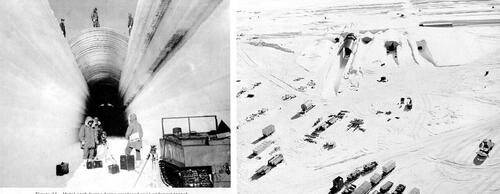 Photos: WSJ
Photos: WSJ
Denmark’s uneasy compromise with U.S. military interests goes back to World War II. In 1941, a Danish envoy in Washington handed control of Greenland’s defense to the U.S. without Copenhagen’s consent. After the war, the U.S. offered to buy Greenland for $100 million, but Denmark refused.
“In the 1940s Denmark learned that if you say no to the U.S., the U.S. will go ahead anyway,” said Ulrik Pram Gad of the Danish Institute for International Studies. “Denmark has been allowed to maintain sovereignty over Greenland by outsourcing some of it—security—to the U.S.”
The U.S.’s undisclosed storage of nuclear weapons in Greenland and a 1968 crash of a nuclear-armed B-52 near Thule Air Base caused long-lasting tensions. More recently, reports of increased U.S. espionage and Trump’s interest in buying Greenland have pushed Greenlanders closer to Denmark.
-
Site: Zero HedgeUkraine Strategic Bitcoin Reserve Bill Reportedly In Final StagesTyler Durden Fri, 05/16/2025 - 03:30
Authored by Zoltan Vardai via CoinTelegraph.com,
Ukraine is reportedly moving closer to adopting Bitcoin as a national reserve asset, a move that could bolster its financial resilience amid the ongoing war with Russia.
Lawmakers are reportedly working on a Bitcoin national reserve proposal, with a draft bill in its final stages, according to Yaroslav Zhelezniak, a member of parliament who confirmed the plan to local media outlet Incrypted.
The proposal was announced during the CRYPTO 2025 conference in Kyiv on Feb. 6.
“We will soon submit a draft law from the industry allowing the creation of crypto reserves,” Zhelezniak said.
Cointelegraph reached out to Zhelezniak for comment on the bill’s status but had not received a response by publication.
Bitcoin has gained international attention as a national reserve asset since the election of US President Donald Trump in November 2024. On March 7, Trump signed an executive order to establish a national Bitcoin reserve seeded with BTC confiscated from criminal cases.
Source: Margo Martin
A month later, Swedish MP Rickard Nordin issued an open letter urging Finance Minister Elisabeth Svantesson to consider adopting Bitcoin as a national reserve asset, citing its growing recognition as a “hedge against inflation,” Cointelegraph reported on April 11.
Legal challenges may delay adoption
While Ukraine’s push for a national Bitcoin reserve marks a potentially historic shift in crypto policy, it may require “significant legal change,” according to Kyrylo Khomiakov, regional head of CEE, Central Asia and Africa, at crypto exchange Binance.
“We commend Ukraine’s ambition to establish a strategic crypto reserve,” he told Cointelegraph.
“Implementing such a reserve would necessitate significant legal changes, indicating that this process will not be swift.”
He added, “Another positive aspect is that this initiative will likely lead to greater regulatory clarity in Ukraine, as the government will need to articulate its stance more clearly.”
Ukraine was reportedly planning to legalize cryptocurrencies in early 2025 with the finalization of a draft bill in coordination with the National Bank of Ukraine (NBU) and the International Monetary Fund (IMF), according to Daniil Getmantsev, head of the tax committee of the Verkhovna Rada.
On April 8, Ukraine’s financial regulator proposed taxing certain crypto transactions as personal income with a rate of up to 23%, excluding crypto-to-crypto transactions and stablecoins.
Not all voices in Ukraine’s crypto industry are optimistic about the timing of the proposal.
”The country is broke. More than 50% of the budget is in grants and loans from the European Union,” said Michael Chobanian, the founder of Ukraine-based Kuna exchange.
“The population is decreasing at the fastest rate in the world. Men are kidnapped and sent to the army against their will. What kind of BTC reserves are we talking about here? This is done only to divert your attention,” Chobanian claimed.
-
Site: Mises Institute
-
Site: Mises InstituteWhile Democratic Socialism is the darling of the political left, all forms of socialism have come from the brutal model first imposed upon Russia in 1917.
-
Site: Zero HedgeGlobal Population Is Projected To Begin Declining In 2085Tyler Durden Fri, 05/16/2025 - 02:45
The global population is undergoing a major demographic shift.
As fertility rates fall and life expectancy rises, average ages are climbing in nearly every country, while population growth is steadily tapering off.
This infographic, via Visual Capitalist's Niccolo Conte, visualizes global population growth and average age from 1980 to 2100, based on data from the IMF’s World Economic Outlook, April 2025 edition.
How the World Will Age as Population Growth Falls
As of 2025, the average person is 33.6 years old, up from 26.5 years in 1980. Over that same period, global population growth has slowed from 1.8% to 0.9% in 2025.
This trend is expected to continue through the end of the century, as shown in the table below, which breaks down the projected average age and population growth rate from 1980 to 2100:
Year Average population growth (%) Average population age (years) Lower range of expected population growth (%) Upper range of expected population growth (%) 1980 1.8% 26.5 0.9% 2.9% 1985 1.8% 26.9 0.8% 2.9% 1990 1.8% 27.3 0.8% 2.8% 1995 1.5% 28.0 0.5% 2.6% 2000 1.4% 28.9 0.6% 2.4% 2005 1.3% 29.8 0.5% 2.4% 2010 1.3% 30.7 0.4% 2.4% 2015 1.2% 31.6 0.3% 2.4% 2020 1.0% 32.5 0.2% 2.0% 2025 0.9% 33.6 0.1% 1.9% 2030 0.8% 34.7 0.0% 1.7% 2035 0.7% 35.7 -0.1% 1.6% 2040 0.6% 36.6 -0.2% 1.4% 2045 0.5% 37.4 -0.2% 1.3% 2050 0.4% 38.1 -0.3% 1.1% 2055 0.3% 38.8 -0.4% 1.0% 2060 0.3% 39.5 -0.4% 0.9% 2065 0.2% 40.1 -0.5% 0.8% 2070 0.2% 40.7 -0.5% 0.7% 2075 0.1% 41.2 -0.6% 0.6% 2080 0.0% 41.6 -0.6% 0.5% 2085 0.0% 42.0 -0.6% 0.4% 2090 -0.1% 42.5 -0.6% 0.3% 2095 -0.1% 42.9 -0.6% 0.2% 2100 -0.1% 43.2 -0.7% 0.2%The global population is projected to begin declining in 2085, as the average age rises to 42 years. By the year 2100, the average person is expected to be 43 years old, with population growth at -0.1%.
However, the trend is divided across countries. Advanced economies like Japan, Germany, and Italy are aging rapidly and seeing population declines. Meanwhile, emerging economies like India still have growing populations, but the growth is slowing down.
The gradual decline is largely due to falling fertility rates globally, along with improvements in healthcare and life expectancy resulting in larger senior populations.
The Impacts of an Aging Population
Many economies are reaching their demographic turning points—when the share of the working-age population in their total population begins declining.
European countries like Germany, France, and Italy crossed this mark pre-2000, and are now among the world’s “super-aged societies”. The United States, the U.K., and China have followed in the last two decades.
But what does this mean for economic growth and the global economy?
Population aging carries several economic challenges. These include shrinking labor forces, slower productivity growth, and increased fiscal pressure on pension and healthcare systems.
However, there is a silver lining: the IMF notes that while people are living longer, they’re also aging more healthfully. This could result in longer working lives and enhance productivity among older workers, potentially easing the economic impacts of an aging population.
If you enjoyed this infographic, check out A Visual Breakdown of Where Economic Power Lies in 2025, on the Voronoi app.
-
Site: Mises InstituteIlana Mercer dismantles Israel’s "Hasbara" myths, exposing harsh truths behind Gaza’s suffering—and the moral complicity of America in enabling atrocities.
-
Site: Novus Ordo Watch
The New Religion expressed architecturally…
Welcome to ‘Paddy’s Wigwam’:
Liverpool Cathedral in All its Glory image: Shutterstock (trabantos)
image: Shutterstock (trabantos)As we take a break from building our new topical page on ‘Pope Leo XIV’, it’s time for another post showcasing a horrendously ugly Novus Ordo church.
Today’s specimen is the metropolitan cathedral of Liverpool, England. Its official name is Metropolitan Cathedral of Christ the King, although among locals it is also known, more accurately, as “Paddy’s Wigwam”.
On the official cathedral web site we read: “The Metropolitan Cathedral of Christ the King is a dramatic icon of faith, architecture, and human endeavour.… READ MORE
-
Site: Novus Ordo Wire – Novus Ordo Watch
The New Religion expressed architecturally…
Welcome to ‘Paddy’s Wigwam’:
Liverpool Cathedral in All its Glory image: Shutterstock (trabantos)
image: Shutterstock (trabantos)As we take a break from building our new topical page on ‘Pope Leo XIV’, it’s time for another post showcasing a horrendously ugly Novus Ordo church.
Today’s specimen is the metropolitan cathedral of Liverpool, England. Its official name is Metropolitan Cathedral of Christ the King, although among locals it is also known, more accurately, as “Paddy’s Wigwam”.
On the official cathedral web site we read: “The Metropolitan Cathedral of Christ the King is a dramatic icon of faith, architecture, and human endeavour.… READ MORE
-
Site: The Unz ReviewThis video is available on Rumble, Bitchute, Odysee, Telegram, and X. New York is one of the few big cities that still publish crime statistics by race. It used to be common, but you’ll see why most places quietly stopped doing it. This drab looking report is dynamite. For every major crime there is a...
-
Site: The Unz ReviewAmerican voters elected Trump president three times. The first election was prevented from producing any results that the people wanted by fake charges of Russia-gate, 2 impeachments, pornstar-gate, documents-gate, insurrection-gate. The second election was stolen by the Democrats and media. The third election is being stolen by the judiciary, which is in the process of...
-
Site: The Unz ReviewAs Israel unveils its final genocide push, and mass death from starvation looms in Gaza, western media and politicians are tentatively starting to speak up Who could have imagined 19 months ago that it would take more than a year and a half of Israel slaughtering and starving Gaza’s children for the first cracks to...
-
Site: AntiWar.comIf flagship NASA missions like the Nancy Grace Roman Space Telescope and the Mars Sample Return mission are being cancelled at the same time that defense spending amounts the majority of last year’s increase in global government space investment, that’s a clear signal how the elected officials in Washington view the Final Frontier. At a … Continue reading "America’s Weaponization of Space Continues Whilst NASA Sees Budget Cuts"
-
Site: The Unz ReviewThe US House of Representatives Has Passed the MEGOBARI Act (HR 36) that places Georgia, now an independent country and once a province of the Soviet Union, under American protection. Washington has to protect free and fair elections in Georgia from Russia and protect Georgia’s “sovereignty and territorial integrity from further Russian aggression.” There has...
-
Site: The Unz ReviewSubmitted as comments by Harald WARNING I have warned you not to publish these ultima verba until long after my death. In my little cemetery, I am now safe from the Marchandeau law, the LICA and the killers of the Israeli secret services. But you, the French of today, your days are numbered. These French...
-
Site: The Unz ReviewAl-Andalus Tribune Rumble link Bitchute link Undoubtedly the best-known Muslim journalist working in English, Yvonne Ridley has written for several of the biggest British publications, as well as al-Jazeera and Press TV. She is also an accomplished documentary filmmaker and one of Europe’s best known Muslim human-rights activists. Her books include In the Hands of...
-
Site: AntiWar.comLouis Theroux explains in a commentary published by the Guardian why the backlash to his recent film about violent, Israeli state-backed settlers misses the point. His critics say he is unfairly presenting a few marginal “crazies” in Israeli society, who rampage across the West Bank to drive out the native Palestinian population, as significant and … Continue reading "Theroux’s Film on Israel’s Violent Settlers Was a Mirror. Resist the Calls to Look Away"
-
Site: The Unz ReviewAntisemitism as we know it has resulted from a complex witch's brew of historical stereotypes, economic resentments, ignorance and political extremism. Antisemites believe that Jewish people "have too much power," "have too much control and influence," and "are more willing than others to use shady practices to get what they want." A central, paranoid canard...
-
Site: The Unz ReviewHere is Richard Stengel, a talking head “political analyst” at MSNBC and former blah-blah person in the Obama regime. Apparently, the Democrats are blocking white South Africans from refuge status in the United States. Stengel’s excuse, explained in the video, is that South Africa was once an apartheid state. That was three decades ago before...
-
Site: RT - News
The US president’s critic has been accused of making a coded endorsement of violence
The US Secret Service is investigating former FBI director James Comey for making a threat against President Donald Trump, Secretary of Homeland Security Kristi Noem has said. Comey, a longtime critic of Trump, has denied that his cryptic, now-deleted Instagram post was a call for an assassination.
On Thursday, Comey posted an image of seashells that formed the number “8647.” He captioned the image with “cool shell formation on my beach walk.”
Trump administration officials and Republican politicians quickly interpreted the image as a threat to the 47th president. Several media outlets cited the Merriam-Webster dictionary, which defines that “86” is a slang term for “to throw out,” “to get rid of,” or “to kill.” According to Newsweek, the number is a mafia term for taking someone “eight miles out of town” and putting them “six feet under.”
“Disgraced former FBI Director James Comey just called for the assassination of Trump,” Noem wrote on X. She added that the Department of Homeland Security and Secret Service are “investigating this threat and will respond appropriately.” Fox News Digital cited a source in the Secret Service as saying they will send agents to investigate and interview the ex-FBI chief.
Just James Comey causally calling for my dad to be murdered.
— Donald Trump Jr. (@DonaldJTrumpJr) May 15, 2025
This is who the Dem-Media worships. Demented!!!! pic.twitter.com/4LUK6crHATFBI Director Kash Patel said the bureau will “provide all necessary support” to the Secret Service in investigating what he said was Comey’s post “directed at President Trump.”
Read more
White House Deputy Chief of Staff Taylor Budowich argued that Comey’s post “can clearly be interpreted as ‘a hit’ on the sitting President of the United States.” Donald Trump Jr. claimed that Comey was “casually calling for my dad to be murdered.”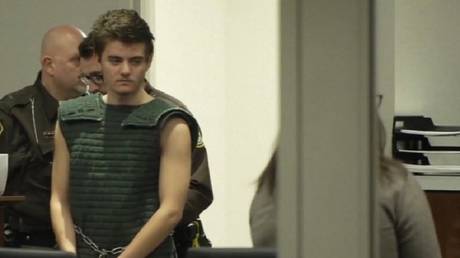 US teen plotted to kill Trump and flee to Ukraine – FBI
US teen plotted to kill Trump and flee to Ukraine – FBI
Comey has since taken down the image. “I posted earlier a picture of some shells I saw today on a beach walk, which I assumed were a political message,” he wrote on Instagram. “I didn’t realize some folks associate those numbers with violence. It never occurred to me but I oppose violence of any kind so I took the post down.”
Trump fired Comey during his first term in office. He accused the former FBI head of spreading lies about him as part of what he called a politically motivated “witch hunt.”
Donald Trump survived two assassination attempts during his 2024 reelection campaign. In July, a gunman opened fire at a rally in Butler, Pennsylvania, grazing Trump’s ear with a bullet and killing a spectator. In September, a second would-be assassin was discovered camping outside Trump’s golf course in Florida.
-
Site: non veni pacem
Pope Paul IV Apostolic Constitution Cum Ex Apostolic Officio of February 15, 1559:
6. In addition, [by this Our Constitution, which is to remain valid in perpetuity We enact, determine, decree and define:] that if ever at any time it shall appear that any Bishop, even if he be acting as an Archbishop, Patriarch or Primate; or any Cardinal of the aforesaid Roman Church, or, as has already been mentioned, any legate, or even the Roman Pontiff, prior to his promotion or his elevation as Cardinal or Roman Pontiff, has deviated from the Catholic Faith or fallen into some heresy:
-
- (i) the promotion or elevation, even if it shall have been uncontested and by the unanimous assent of all the Cardinals, shall be null, void and worthless;
(ii) it shall not be possible for it to acquire validity (nor for it to be said that it has thus acquired validity) through the acceptance of the office, of consecration, of subsequent authority, nor through possession of administration, nor through the putative enthronement of a Roman Pontiff, or Veneration, or obedience accorded to such by all, nor through the lapse of any period of time in the foregoing situation;
(iii) it shall not be held as partially legitimate in any way;
(iv) to any so promoted to be Bishops, or Archbishops, or Patriarchs, or Primates or elevated as Cardinals, or as Roman Pontiff, no authority shall have been granted, nor shall it be considered to have been so granted either in the spiritual or the temporal domain;
(v) each and all of their words, deeds, actions and enactments, howsoever made, and anything whatsoever to which these may give rise, shall be without force and shall grant no stability whatsoever nor any right to anyone;
(vi) those thus promoted or elevated shall be deprived automatically, and without need for any further declaration, of all dignity, position, honour, title, authority, office and power.
7. Finally, [by this Our Constitution, which is to remain valid in perpetuity, We] also [enact, determine, define and decree]: that any and all persons who would have been subject to those thus promoted or elevated if they had not previously deviated from the Faith, become heretics, incurred schism or provoked or committed any or all of these, be they members of anysoever of the following categories: the Cardinals, even those who shall have taken part in the election of this very Pontiff previously deviating from the Faith or heretical or schismatical, or shall otherwise have consented and vouchsafed obedience to him and shall have venerated him;
Castellans, Prefects, Captains and Officials, even of Our Beloved City and of the entire Ecclesiastical State, even if they shall be obliged and beholden to those thus promoted or elevated by homage, oath or security; shall be permitted at any time to withdraw with impunity from obedience and devotion to those thus promoted or elevated and to avoid them as warlocks, heathens, publicans, and heresiarchs (the same subject persons, nevertheless, remaining bound by the duty of fidelity and obedience to any future Bishops, Archbishops, Patriarchs, Primates, Cardinals and Roman Pontiff canonically entering).
-
-
Site: RT - News
Multiple countries have launched investigations into the US-led alliance’s procurement system
Police have conducted arrests and searches in several countries as part of a corruption investigation into current and former employees of the NATO Support and Procurement Agency (NSPA).
The raids, coordinated by Eurojust – the EU’s criminal justice agency – took place in Luxembourg, Belgium, the Netherlands, Spain, Italy, and the US. The alliance told Luxembourg Times on Wednesday that NSPA’s main headquarters in the Grand Duchy had initiated the probe.
“NATO – including the NSPA – is working closely with law enforcement to ensure that perpetrators are brought to justice,” spokeswoman Allison Hart said. “We are actively strengthening our ability to mitigate risks and root out misconduct,” she added.
NATO Secretary General Mark Rutte told reporters in Ankara on Thursday that the military bloc was working with the authorities. “We want to get to the root of this,” Rutte said.
Read more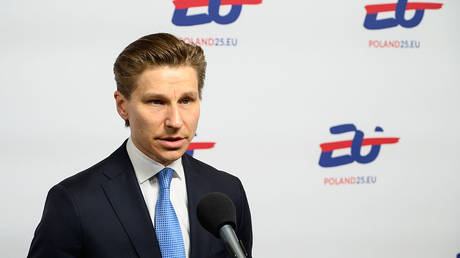 NATO state considers subjecting older citizens to military service
NATO state considers subjecting older citizens to military service
The public prosecutor’s office in Luxembourg said that documents had been seized pertaining to suspicions that NSPA staffers had “used their positions to enrich themselves.”
Two people were arrested in Belgium and three in the Netherlands, officials said. Belgian prosecutors stated that the investigation centers around “possible irregularities in awarding contracts to defense contractors for the purchase of military equipment for NATO such as ammunition and drones.” The probe is also investigating the possible sharing of confidential information by NSPA employees with defense companies and money laundering.
Authorities in the Netherlands have said they arrested a former official with the Dutch Defense Ministry at Amsterdam Airport Schiphol on Monday. The former civil servant is suspected of taking bribes in 2023 related to the awarding of defense contracts.
The investigation takes place as NATO members are looking for ways to boost their own defense and produce more weapons to be delivered to Ukraine. In March, the European Commission unveiled a plan to raise €800 billion ($896 billion) to “rearm” the EU.
-
Site: The Remnant Newspaper - Remnant ArticlesMichael Matt's first personal interaction with Cardinal Prevost, the new Pope Leo XIV came a couple of years ago in Rome when Michael was covering the Synodality Synod., Yes, the cardinal seems to think Synodality has a place in the church, but no, he does not seem to want it to crush two thousand years of Catholic tradition.
-
Site: Public Discourse
Writing last month about Whittaker Chambers’s Witness made me think of Ronald Reagan, who awarded the Medal of Freedom to him posthumously in 1984 (see here at the 6:38 mark for that moment in history). Reagan did not share Chambers’s pessimism about the outcome of the Cold War—to the country’s great benefit, Reagan seemed congenitally incapable of pessimism—but he had read Witness and agreed with the author about what was at stake in the struggle against Communism.
Another mid-century author who influenced Reagan was Friedrich A. Hayek, who was invited to the Oval Office in 1983 (see here at the 6:07 mark). Alas, Hayek got no medal that day, just a pair of cufflinks. (It was left to George H. W. Bush to give Hayek the Medal of Freedom, in 1991.) But Reagan had plainly read some of Hayek’s work, and the book that was most likely to have been in the president’s hands was The Road to Serfdom. Like Witness, Hayek’s most famous book has been on my shelves for years, and I have only recently read it for the first time.
I had read some of Hayek’s other writings before, including parts of his later works The Constitution of Liberty and Law, Legislation, and Liberty. And I did not need persuading about the virtues of free markets or about the inefficiencies at best, and evils at worst, of socialist depredations on economic freedom. But I suppose that somewhere in the back of my mind I suspected that an economist would be drily technical on the subject, and would not write very well. The Road to Serfdom was, therefore, a delightful surprise. Though English was not the first language of the Austrian economist, and Hayek would say in a foreword to a later edition that the book was “not intended for popular consumption,” Road to Serfdom is fluidly written, with a clarity of expression and a passionate moral teaching that together account for both its astounding success in 1944 and its staying power over the last eight decades.
Hayek calls himself a liberal, by which he means a classical liberal, a partisan of liberty. (The famous “postscript” to The Constitution of Liberty is titled “Why I Am Not a Conservative.”) He succinctly states liberalism’s “fundamental principle that in the ordering of our affairs we should make as much use as possible of the spontaneous forces of society, and resort as little as possible to coercion.” In other places, instead of “liberalism,” he refers to the “philosophy of individualism.” Hayek always has his eye on the impact of political power on the life of the individual, whatever his station in life. What each of us chooses to value, to strive for, to plan, to develop as our own place in the world—or to forgo, to sacrifice, to deny ourselves in pursuit of something else: this is the freedom that matters to Hayek.
The payoff of that freedom is huge—in scientific progress, in economic growth and prosperity, in the conquest of sufferings and privations, as well as in the private satisfactions of each person’s work. But it is the political preconditions of that freedom that concern Hayek, for in the midst of the Second World War he sees worrying signs that they are breaking down in the West. Those preconditions are the rule of law, the protection of private property, and the preservation of a competitive marketplace in which risks and prices, successes and failures reflect the choices made by countless individual producers and consumers on the ground, not the choices made by “experts” attempting to plan the economy from above.
Hayek’s bête noire is planning—more precisely, he denounces “planning against competition,” the effort by governments to direct, control, or supplant competition by individual economic actors. Planning for competition is a form of positive political action, in Hayek’s view; that governments foster sound money and economic transparency, maintain good roads and harbors, enforce legitimate contracts, protect the natural environment, and do a hundred other things that lubricate a liberal economy, is all to the good. Anticipating caricatures of his view, he rejects any “dogmatic laissez faire attitude” that would cripple the government’s ability to undertake such positive policies. Hayek accepts laws “to limit working hours,” with the caveat that “the advantages gained” should be “greater than the social costs which they impose.” Ditto for “an extensive system of social services,” or even the idea that “a uniform minimum be secured to everybody”; “the case for the state’s helping to organize a comprehensive system of social insurance is very strong.” No lurid portrait of predatory capitalism can be produced by any fair-minded reader of Hayek’s book.
But this same solicitude that he extends to the unfortunate and the vulnerable is what underlies Hayek’s implacable opposition to the “expert” planning that would presume to fix prices, to set production quotas, to prop up failing enterprises, to protect favored industries from competition, to guarantee jobs, and to equalize incomes. The fundamental error in such planning is the failure to understand how little information the planner can master, out of all the constantly churning data of a modern market economy. No person, no merely human mind, can take it all in and direct every variable. The market’s great virtue is that it is impersonal, that as a system it has no more intentionality than the weather. It gives us rain in one season, sunshine in the next. Each human being pursuing his own aims is a discrete input in a blizzard of information, and each of those human beings is better off in the long run if no one attempts the superhuman feat of mastering the climate. For such attempted mastery is doomed to fail.
Hayek understands the temptation to try such planning, and he notes that in the nineteenth century the argument first emerged that, because of increasing market complexity, expert control was more necessary than ever. But this has things backward, he argues: such complexity makes it more impossible than ever, thanks to the increasing quantity of information the expert would have to comprehend. All that the expert’s planning against competition can do is cripple and impoverish an otherwise self-correcting and growing market. And, in a line that our current policymakers should memorize, Hayek writes: “The one thing modern democracy will not bear without cracking is the necessity of a substantial lowering of the standards of living in peacetime or even prolonged stationariness of its economic conditions.”
As that sentence suggests, The Road to Serfdom is a work of political economy, with an emphasis on the politics. The impulse to direct and control the market leads inexorably to the growth and concentration of political power, and this in turn to the arbitrary exercise of such power, when rulers discover that a scrupulously rules-based order hampers their discretion too much. Corruption inevitably follows, with rulers playing favorites and feathering their own nests, and finally nothing will satisfy the partisans of planning but that a dictator command the economy. “And whoever controls all economic activity controls the means for all our ends and must therefore decide which are to be satisfied and which not.” Thus does a demand for planned control of the market eventuate in a tyranny over every facet of life.
Hayek does not shrink from calling the end of this road a “totalitarian” society, in which propaganda and lies supplant the free pursuit of truth, and the rule of unconstrained and arbitrary force replaces the rule of law: “while the last resort of a competitive economy is the bailiff, the ultimate sanction of a planned economy is the hangman.” In such a system, he writes, “there will be special opportunities for the ruthless and unscrupulous.”
Hayek’s forceful argument—that every species of socialism, if not arrested or checked somehow, will lead to the same totalitarianism that readers in 1944 could see in Hitler’s Third Reich or Stalin’s Soviet Union—caused considerable outrage on the Left. The Second World War was not yet won, and the Soviet Union was still the ally of the West. And even those on the Left who could see Stalin’s Russia clearly, like George Orwell, resisted Hayek’s paean to market liberalism. The most virulent response to Hayek came from the Fabian socialist political scientist Herman Finer, who published a whole book the following year responding to him, titled The Road to Reaction—an unhinged screed in which one can almost see the author’s spittle sprayed over every page.
It is a blessing to the memory of Professor Finer that his book is out of print. Hayek’s has never been, and its success in 1944 and 1945 far exceeded the author’s expectations. It was respectfully (in some cases enthusiastically) reviewed in both academic and popular venues by such luminaries as Aaron Director, Joseph Schumpeter, Michael Polanyi, and Henry Hazlitt. Following its UK publication by Routledge, The Road to Serfdom was published in the US by the University of Chicago Press, but more importantly, it was condensed in the April 1945 Reader’s Digest, and placed (uniquely in the Digest’s history) at the front of the magazine. This caused such a sensation that when Hayek came to lecture in the United States later that spring, he found himself speaking before immense crowds. He was suddenly a rock star avant la lettre.
Coming to The Road to Serfdom for the first time, what I find most interesting about it is Hayek’s humility about what his own profession can know and predict, let alone aspire to control. There is an implicit philosophy of science at work in this book, informing Hayek’s conviction that only harm can come to the economy from efforts to plan and direct its operation, because the complexity of human affairs defies all attempts at beneficent mastery. One can find this philosophy of science more explicitly spelled out in his 1952 book The Counter-Revolution of Science: Studies on the Abuse of Reason (now available under a modified form of its original subtitle). Here Hayek explains what a mistake it is for economists, or social scientists generally, to believe they do the same kind of work that natural scientists do. The latter “necessarily begin with the complex phenomena of nature and work backward to infer the elements from which they are composed.” But the social scientist, Hayek observes, “must start from what men think and mean to do”—that is, from subjective elements of human thought, opinion, belief, and will—and then attempt to grasp or conceptualize a complex picture made up of them.
The natural and social sciences, one might say, run in opposite directions to and from parts and wholes. And in human affairs, “the wholes as such are never given to our observation but are without exception constructions of our mind.” And so “the economy” is nothing like “the earth.” The latter exists; we can till it, we can extract oil from it, and we can be buried in it. The former is not an objectively existing thing, but a construct, an agglomeration of data—some useful, some pointless (think of “trade deficits”). Hayek’s thoughts on thought itself ground his classic warning against the dangers of the temptation to control the freedom of others as they make their own way in that complex world of human action and interaction that surpasses our ability to understand.
-
Site: AsiaNews.itAzerbaijani President Ilham Aliyev continues to insist that 'the Turkic World is our family'—a perspective that resonates increasingly with the rising nationalist sentiment in the majority-Azeri regions beyond the Iranian border, fuelled in part by support for Tabriz's football team. A phenomenon that the authorities in Tehran are responding to with harsh repression.




